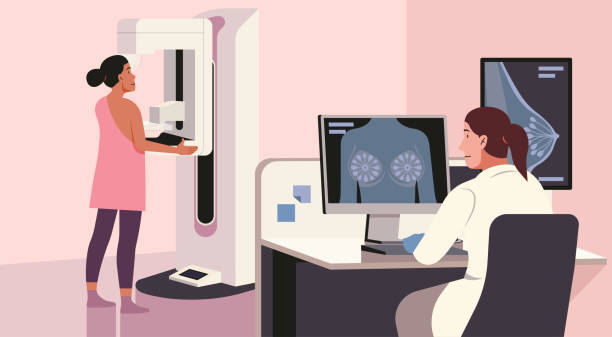Immunotherapy in HER2-Negative Breast Cancer: Unlocking the Potential for Better Outcomes
Breast cancer continues to be the most prevalent cancer among women worldwide. HER2-negative breast cancer accounts for approximately 80% of all breast cancer cases and is not driven by the overexpression of the HER2 receptor. While traditional treatments like chemotherapy and radiation have been the primary approach, many patients with HER2-negative breast cancer experience recurrence and metastasis, leading to poor prognosis.
Breast cancer continues to be the most prevalent cancer among women worldwide. HER2-negative breast cancer accounts for approximately 80% of all breast cancer cases and is not driven by the overexpression of the HER2 receptor. While traditional treatments like chemotherapy and radiation have been the primary approach, many patients with HER2-negative breast cancer experience recurrence and metastasis, leading to poor prognosis. Immunotherapy offers new hope by leveraging the body's immune system to combat tumor growth and recurrence, providing a more precise and potentially more effective treatment option for HER2-negative breast cancer.

Understanding Immunotherapy for HER2-Negative Breast Cancer
Immunotherapy is a groundbreaking approach in the treatment of HER2-negative breast cancer. This subtype of breast cancer does not overexpress the HER2 protein but is still susceptible to immune system manipulation. Immunotherapy treatments work by enhancing the body's natural immune responses to detect and destroy cancer cells. Unlike chemotherapy, which indiscriminately attacks both healthy and cancerous cells, immunotherapy aims to be more targeted and less toxic, promising improved efficacy and fewer side effects for HER2-negative patients.
Key Players in Immunotherapy for HER2-Negative Breast Cancer
Several immune-based treatments are currently being explored and tested for HER2-negative breast cancer. One of the most prominent examples is immune checkpoint inhibitors like pembrolizumab (Keytruda) and nivolumab (Opdivo). These drugs target the PD-1/PD-L1 pathway, which is often exploited by cancer cells to evade immune detection. By blocking this pathway, these treatments allow the immune system to more effectively recognize and attack cancer cells. Additionally, vaccines and antibody-drug conjugates are also being researched to enhance immune responses and improve survival rates.
Promising Results for Immunotherapy in HER2-Negative Breast Cancer
Recent clinical trials have shown encouraging results for immunotherapy in HER2-negative breast cancer. Studies have indicated that immunotherapy can significantly improve survival rates, reduce recurrence, and enhance patients’ quality of life. These therapies are generally well tolerated, with fewer side effects than traditional chemotherapy. The promising results underscore immunotherapy’s potential to provide a more effective treatment with improved outcomes for HER2-negative breast cancer patients.
Challenges and Future Directions for Immunotherapy in HER2-Negative Breast Cancer
Despite the promising results, there are several challenges to overcome. Identifying biomarkers to predict which patients will respond best to immunotherapy is crucial for making treatments more personalized and effective. Furthermore, researchers are working on developing new drugs, optimizing existing therapies, and exploring combination treatments to enhance the effectiveness of immunotherapy in HER2-negative breast cancer. As the field progresses, we are likely to see significant advancements that will further improve treatment options for patients.
Conclusion
In conclusion, immunotherapy is revolutionizing the treatment of HER2-negative breast cancer. By utilizing the body’s immune system to target cancer cells more precisely, immunotherapy offers a less toxic and highly effective alternative to traditional treatments. Key drugs such as pembrolizumab and nivolumab have demonstrated significant improvements in survival and quality of life. With ongoing research, new breakthroughs in immunotherapy are expected to transform the way HER2-negative breast cancer is treated, offering hope for better outcomes and long-term survival.